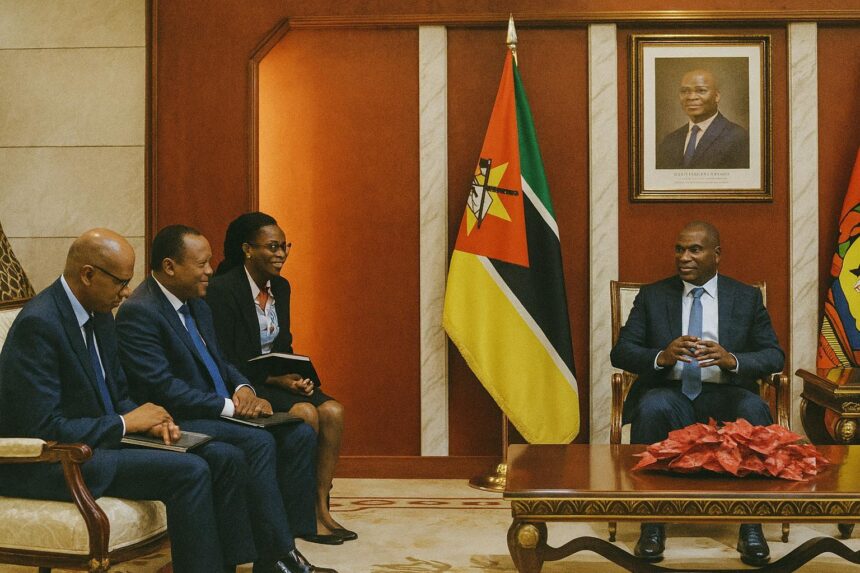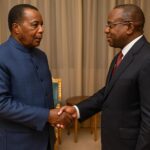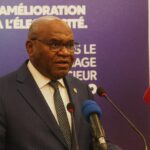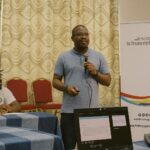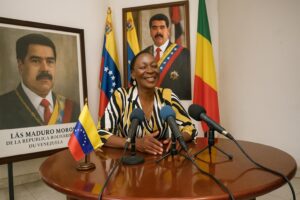Diplomacy in Motion through Southern Africa
Carrying what Congolese observers like to call his “pilgrim’s staff”, Foreign Minister Jean-Claude Gakosso has embarked on an intensive shuttle across southern Africa, seeking to weave a quilt of endorsements for Firmin Édouard Matoko, Brazzaville’s candidate for Director-General of UNESCO. After constructive stops in Luanda and Pretoria, the minister arrived in Maputo on 23 July, bearing a personal message from President Denis Sassou Nguesso to Mozambican head of state Daniel Francisco Chapo. Sources close to the Quai d’Orsay in Brazzaville describe the tour as a calculated blend of high diplomacy and cultural evangelism, designed to translate Africa’s demographic weight into decisive votes at the Paris-based agency’s 2025 election (Agence Congolaise d’Information, 2024).
Matoko’s Profile and the Stakes for UNESCO
Matoko is no stranger to the corridors of UNESCO headquarters. From 2010 to 2021 he served as Assistant Director-General in charge of Priority Africa and External Relations, building a reputation for bridging technocratic rigour with political finesse (UNESCO press release, 2021). His platform, insiders say, revolves around an ‘UNESCO of the future’—one that aligns digital literacy, intangible heritage and climate resilience with the developmental priorities articulated in Africa’s Agenda 2063. For Congo-Brazzaville, championing such a figure not only amplifies national prestige but also situates the country as a convening hub for pan-African soft power, a vital complement to its long-standing mediation initiatives in Central Africa.
Maputo’s Reception and Regional Resonance
President Chapo, often cast by regional media as emblematic of a generation intent on recalibrating Africa’s place in global governance, offered what aides described as ‘unequivocal and enthusiastic’ support for Matoko. The Mozambican leader praised the candidate’s dedication to safeguarding maritime heritage and promoting lusophone cultural corridors, themes of particular resonance for a nation whose coastline was both stage and witness to centuries of Afro-Atlantic exchange (O País, 24 July 2024). Diplomatic analysts in Maputo view the endorsement as consonant with Mozambique’s broader foreign-policy doctrine, which privileges multilateral platforms capable of delivering tangible cultural and educational dividends.
From Okavango to Mauritius: Building a Continental Bloc
Armed with Maputo’s blessing, Gakosso’s entourage next heads to Gaborone. Botswana’s custodianship of the Okavango Delta—UNESCO’s milestone 1 000th World Heritage inscription—has fostered a domestic constituency alert to the politics of cultural patrimony. By foregrounding Matoko’s track record in heritage conservation, the Congolese delegation hopes to anchor Botswana within a cohesive voting bloc. The itinerary then advances to Mauritius, a state whose rapidly expanding blue-economy agenda dovetails with Matoko’s vision of linking cultural heritage to sustainable development finance. Mauritian officials, asked about the visit, emphasise their historical commitment to UNESCO conventions and hint at a favourable disposition once cabinet consultations conclude (Le Mauricien, 2024).
Implications for African Multilateral Influence
Should the campaign secure a critical mass of African votes before the formal canvassing period begins in Paris next year, Brazzaville would demonstrate the potency of patient, itinerary-based soft power. Beyond numbers, the process underscores an emergent consensus that Africa’s cultural and scientific priorities must be articulated from the top of UNESCO itself, rather than through ad hoc project funding. Western diplomats contacted in Pretoria concede, off the record, that Matoko’s multilingual fluency and career longevity render him a formidable contender, particularly if the African Union designates him its sole flag-bearer. For Congo-Brazzaville, the political dividend is twofold: consolidating its image as a diplomatic problem-solver and reinforcing President Sassou Nguesso’s narrative of principled multilateral engagement.

